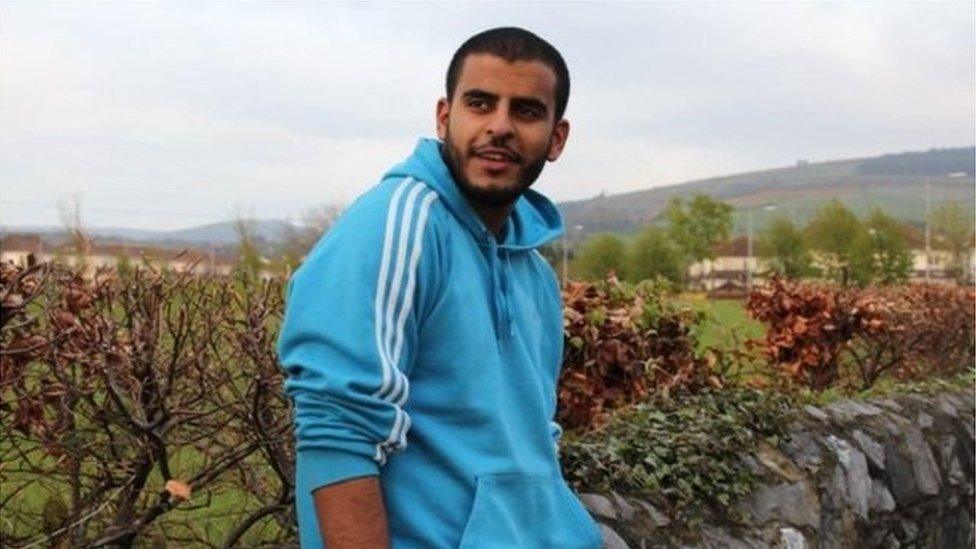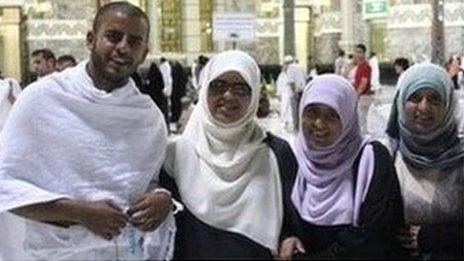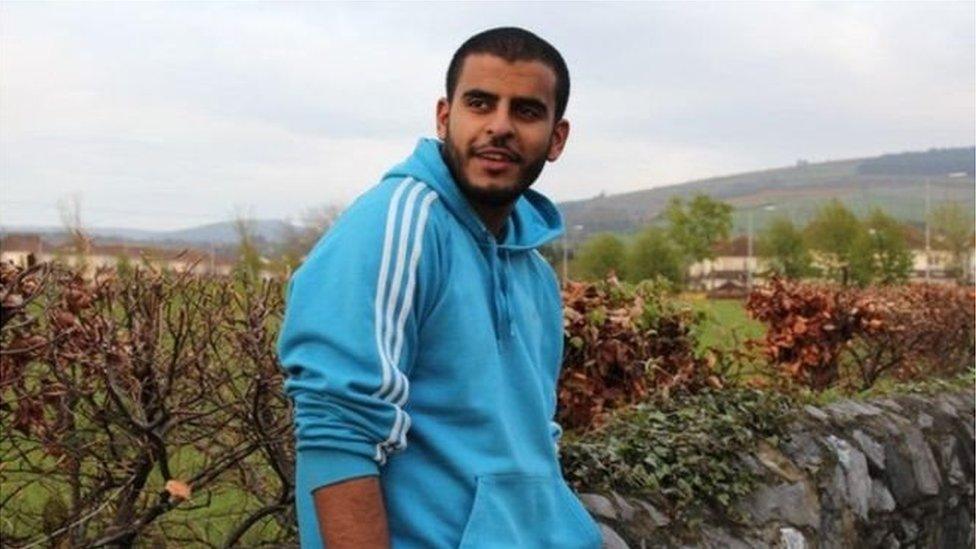Irish prisoner Ibrahim Halawa 'now using wheelchair'
- Published

Ibrahim Halawa was 17 when he was imprisoned in 2013
A 21-year-old Irishman on hunger strike in an Egyptian prison has become so weak that he is using a wheelchair, his lawyer has said.
Ibrahim Halawa has been in jail without trial for more than three years.
He was 17 when he was arrested with three of his sisters during a siege at the Al-Fath mosque in Cairo in 2013.
His lawyer told BBC News NI that during a family visit last week, Mr Halawa was so weak, jail staff used a wheelchair to bring him to see his relatives.
The prisoner, who was born and raised in Dublin, is represented by Belfast-based solicitor, Darragh Mackin.
'Deteriorated rapidly'
Mr Halawa is the son of the most senior Muslim cleric in the Republic of Ireland and the Irish government has tried to negotiate his release.
The prisoner has staged intermittent hunger strikes in protest against his continued detention without trial.
Over the past three years, his court case has been adjourned 19 times.

Ibrahim Halawa was arrested along with his sisters Fatima, Omaima and Somaia
Irish embassy officials had visited Mr Halawa in prison more than 50 times, said the Department of Foreign Affairs in a statement.
Diplomats most recently met him on 1 March for 40 minutes at Torah prison, where he had been moved for medical tests requested by the Irish embassy, added the statement.
"Embassy officials urged him, as they have consistently done during the time that he has been in prison, to look after his health by ensuring that he eats properly and drinks plenty of water," said the department.
On Sunday, however, Sinn Féin MEP Lynn Boylan said Mr Halawa's condition had "deteriorated rapidly" and said campaigners were very concerned for his health.
Speaking to Irish broadcaster, RTÉ, she said the prisoner was being "kept alive" with glucose injections.
His solicitor said Mr Halawa restarted his hunger strike about three weeks ago.
The case is due to return to court later this week but Mr Mackin expressed concern that the trial may be adjourned again.
Irish foreign minister Charlie Flanagan raised Mr Halawa's health with his Egyptian counterpart Sameh Shoukry during talks in Brussels on 6 March, said the statement from the Department of Foreign Affairs.
"At that meeting, Minister Flanagan also again conveyed the Irish Government's wish to see Ibrahim returned to Ireland," it said.
Family arrested
At the time of their arrests, the Halawas were on family holiday in their parents' homeland.
Their trip coincided with violent anti-government protests in Cairo, staged in support of the ousted President Mohammed Morsi.
The family were arrested, along with many others, when Egyptian security forces stormed the Al-Fath mosque in August 2013.
Mr Halawa's three sisters were released after about three months and were allowed to return home to Dublin, but he has remained in jail.
For several years, Mr Halawa was told he would face the death penalty if he was convicted at a mass trial.
However, in January the Egyptian president told a delegation of Irish politicians that he will offer a pardon Mr Halawa once his trial is over.
The Egyptian parliament has previously objected to calls from the Irish parliament to release the Dubliner, saying the request would interfere in the affairs of the Egyptian judiciary.
- Published17 January 2017
